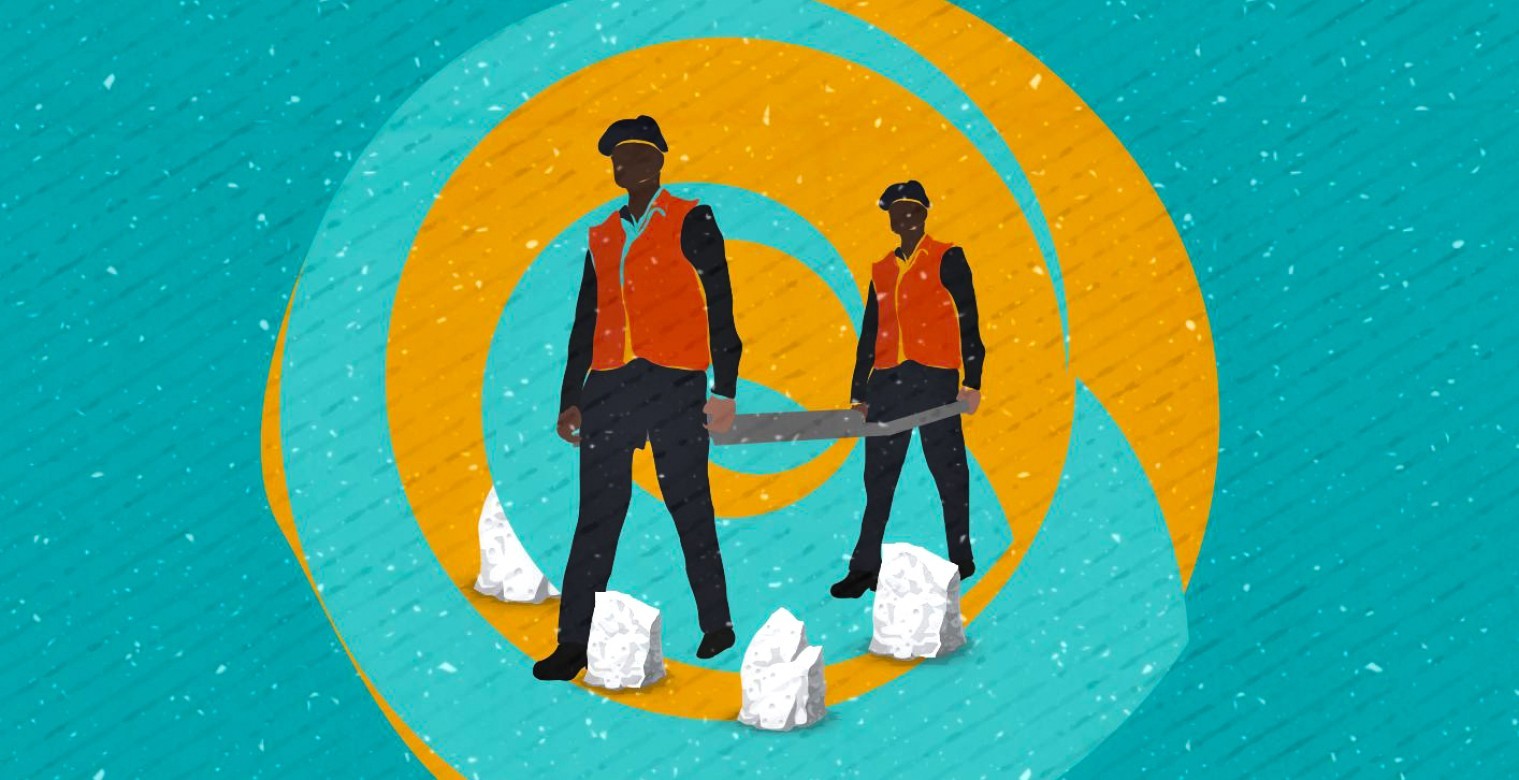Ashraf Abd al-Nabi, 43, works in the Civil Defense in the Gaza Strip and lives in Jabalia refugee camp in the northern Gaza Strip, but in times of emergency, his work is distributed among the five governorates of the Gaza Strip.
Dressed in his traditional dress, Abd al-Nabi sits on a plastic chair at the Gaza Civil Defense office, with a telephone and a walkie-talkie in front of him, both of whom are used to get directions to carry out his mission of putting out fires and rescuing citizens.
One day in early October last year, the morning atmosphere seemed quite calm. Inside his workplace, occasional signals came in via the radio, but the 'situation was reassuring' as he spoke to himself and smiled.
Abd al-Nabi is not used to this calmness, as there are only intermittent periods in which the Gaza Strip does not experience Israeli aggression, which pushes him and dozens of civil defense crews to carry out their tasks without toil or boredom, even though they do not have sufficient work equipment to deal with complex tasks.
Abdul Nabi points out that he was exposed to many horrific events during the implementation of various work missions, more than a decade ago, and says: "Many scenes stuck in my memory that cannot be eliminated, as a result of the sequence of events. We can't get a deep breath for long, aggression surprises us from time to time!'.
Abdul Nabi points out that he was exposed to many horrific events during the implementation of various work missions, more than a decade ago, and says: "Many scenes stuck in my memory that cannot be eliminated, as a result of the succession of events. We can't get a deep breath for long, aggression surprises us from time to time!'
Abdul Nabi was unable to complete his university education due to financial difficulties. He then considered joining the Civil Defense after going through many intensive courses and training for many months, but the field work is very different, it's harder and harsher, he said.
The Man is constantly afraid and worried about the lives of their four children, especially when dealing with an incident involving child victims.
"Fear for your children cannot be excluded from the scene, because they and hundreds of other children are exposed to such events as a result of shelling that does not care about civilians," he said.
"In the 2014 aggression, the atmosphere was crowded with the sounds of rockets, a resident in the northern Gaza Strip asked for help, but we were surprised that there were many children with disabilities who could not get out," he recounts, at that moment I remembered my children and began to collapse little by little.
Recovery from this pain was not easy. Every time the Gaza Strip faced a new aggression, he and his co-workers were exposed to many obstacles that surrounded them from all directions.
Chief among these obstacles is the lack of capabilities and protection tools that were supposed to exist, but due to the blockade imposed on the Gaza Strip sixteen years ago, they are no longer available in adequate quantities.
Abdel Nabi criticizes the lack of a law capable of protecting them and other civil defense personnel, despite the fact that the Geneva Convention included civil defense crews as part of the protection of civilians, but says that "this is not enough on the ground. Everyone here is at risk.'
Mahmoud Basal, spokesman for the Civil Defense in the Gaza Strip, said that the civil defense teams face many difficulties in trying to continue their work, due to the lack of capabilities and the lack of sufficient and appropriate work mechanisms that help quickly save lives during disasters and wars and save time and effort.
Basal pointed out that there are eighteen civil defense centers in the Gaza Strip distributed according to geographical location, and distributed as follows: Gaza 45, northern Gaza 62, Central 13, Khan Younis 7, Rafah 10.
As for the 22 civil defense vehicles, he pointed out that they are dilapidated and work in a flabby and inefficient manner and need to be renewed due to their damage after the last aggression on the Gaza Strip in 2021.
The situation of Ashraf Abd al-Nabi and his fellow civil defense personnel, like many civilians who work in various professions at risk to their lives, is not protected by domestic or international law, in addition to the existence of a blockade that prohibits the possession of equipment that can protect against death.




